One Way To Generate Income in South America
Front Entrance to La Torre Suiza Hostel
Sometimes things that seem wrong just turn out right–to our surprise. As we planned our exploration of Villarrica, we made a reservation at a hotel, only to find, upon arrival, that we did not have a reservation after all. The hotel was full.
So we drove closer to the downtown and found La Torre Suiza Hostel. Although it is technically a hostel, they did have a private room and bath and that’s where we stayed. It was a stroke of luck for us–and perhaps for our readers. The result is a business idea for you that we have also considered–and still do.
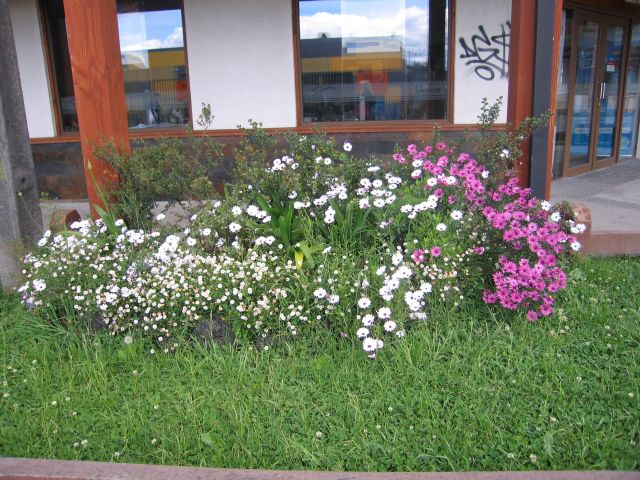 Just Inside the Gate At the Hostel
Just Inside the Gate At the Hostel
By chance we booked into a hostel that had only recently changed owners. The man in charge was Rodrigo Ramirez. He is a consultant hired by the Santiago-based owner to make this new venture profitable. It is easy to see that Rodrigo loves his work. He has managed several hotels. He can tell you what areas are good for this business, and which are not. He knows tricks of the trade in Chile–and he speaks English.
Just for a little background, in South America, there are various types of hospitality businesses. The hospedage (hos-peh-DAH-hay) is similar to a bed and breakfast in the States, though usually not as fancy. It is usually the family home. The family lives in their own private quarters, but they rent rooms after the fashion of a hotel or a guest house. In some hospedages, more than one room might share a bath and still other rooms have private baths with a little higher price for the private bath. They often–but not always–offer breakfast. Sometimes they offer common cooking facilities for use by the guests. The maid goes in and makes the bed, similar to a hotel.
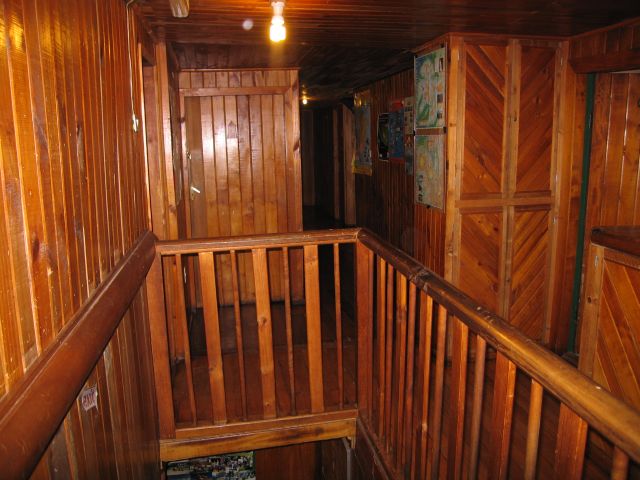 Upstairs In This Hostel.
Upstairs In This Hostel.
We included this just to show you the rich Chile wood that is all over this country. Most of the buildings we have seen are made from wood like this, or at least trimmed with it.
In South America, the hostel is different from the hospedage or hotel in that, if you stay in a hostel, the common practice is that you just rent the bed, wherever it happens to be, and not the room. It may well be co-ed and usually they offer a locker with each bed where you can stow your back pack. Hostel guests are expected to bring their own padlock and key, but I noticed that Rodrigo provides a padlock.
Usually these places cater to young backpackers, some of whom carry their guitar. Guests also bring their own towel, soap, and so on. If the hostel provides a towel, there often is a fee so often (but not always) the hostel is kind of a bare-bones affair. It is not unusual to have live music in the common area at night, provided by the guests. Different hostels can have different personalities depending on the clientele to which they cater. I have stayed in hostels when one of my family members was considering that business and asked me to go along to observe how it was operated. I certainly didn’t belong there, except for business interests since I could be a grandmother to most of them. Yet the kids enthusiastically invited me to come to the common area, telling me they were playing their instrument tonight. And yet in some hostels I have seen older women, traveling alone–backpacking. It is a low-cost way to see South America.
The hostels usually have several gathering areas, a kitchen area with tables where guests make their own meals and can keep food–usually in a refrigerator kept locked by the management.
A typical hostel is as much about socializing as about having a place to stay. Often these young people make friends and go off in a group for some activity or even to travel to a common destination together. The hostel provides one or more computers with time limits, i.e., fifteen minutes, for example. Different geographical areas, of course, charge differently but $14 to $15 per bed seems pretty common. It could be as much as $20 per night. Do the math. You’ll be surprised. I have seen large bedrooms with five bunk beds (ten guests in a single room. Rodrigo told us that guests who had stayed here under the previous owner reported as many as 50 guests at one time. Rodrigo tells us he would never consider that many.
Then there is the small hotel (or the large hotel if you happen to have deep enough pockets for that kind of investment). All are related. All are hospitality businesses. So if you have an interest in hospitality, these are your choices in South America.
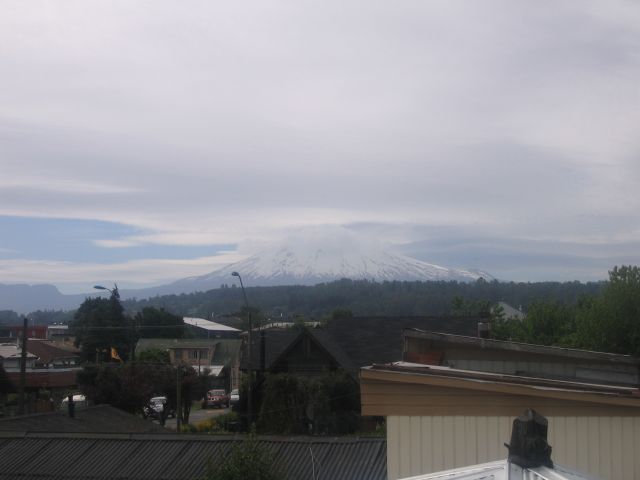 The View From My Bedroom.
The View From My Bedroom.
During the short time we were there it was overcast and rained and the mountains tended to be obscured by clouds. We thought maybe you would at least have an idea of what the view would be on a sunny day.
In this particular place, Rodrigo showed us where he plans to add a restaurant and where the Bar-B-Q area will be. He told us one thing he likes about this business is it takes only one employee or possibly two. It is very hard work at start up (this is true of all businesses) but once you get it started, it is easy, he said. The real work is done by employees and you manage the business and entertain your guests,which is the part that he enjoys.
We think that this business may be a natural for ex-pats who have sold their home and have some money to invest, and who enjoy people and entertaining. It is possible to buy a place for under $200,000. or, of course, for a lot more, depending on size, condition, and other factors. We have a family friend who rented a 7-bedroom building for years, in Valdivia, Chile, and ran a profitable hospedage. During the tourist season, we knew of times she even rented tent space in the yard. From our own observance of these businesses, and from Rodrigo’s description of the business, it appears to us that you could have a hostel or hospedage with well trained employee(s) and have another business as well for those who might be interested in doing that.
Also some might look at it this way. If you have family that needs to stay in their respective countries to work, but you think there is a chance that they may someday need to exit if they are to stay out of the line of fire, with a little planning you could have a secure place for them to come. But, if not, you could still have a productive, successful business. In our opinion there is a caveat here. We think you would need to like this business. If you genuinely like and welcome guests, they will know it. but if you don’t, probably they will know that as well. This is why it is called a “hospitality” business. You need to have the attitude of hospitality to be successful–or so we think anyway.
There is very little opportunity here for a mortgage except from the seller, and then only for a year or so. That works especially if you know that you want to buy, but need to liquidate another asset to pay for it. The fact that few people have mortgages is one reason we believe that, in the event of a world economic crisis, the people here will be better able to cope with it. Also, people in South America have experience with self-sufficiency and survival–something I think is sadly lacking in more developed countries.
If you are in a purely tourist area, you could rent rooms in the high season and relax the rest of the year.
This particular building has 13 rooms. It is billed as a hostel, but it could easily be operated as a hospedage or a small hotel with private rooms. In some cases, in this building, some would share a bath but this is not uncommon here in South America. In a high-level hotel, of course, rooms always have private baths. But hostels and hospedages are lower cost and shared baths are accepted.
Rodrigo provides breakfast in the morning, Chile fashion. Most South Americans drink coffee and have bread or sweet rolls or “tostadas” (small toasts) for breakfast. They sometimes laugh about the Americans who eat eggs and bacon and toast for breakfast. In fact, if you see on the menu something like “Gringo Breakfast” it will almost surely be those items plus coffee and orange juice. That is NOT a Chile breakfast.
Hostel Torre Suiza offers orange juice and there is a bowl of fruit, rolls with butter and jelly, cereal, and yogurt. It is always the same so certainly not a big project.
You could buy a well-located house with a number of bedrooms, or potential for bedrooms, and convert it. You would need to have a web site and get your business listed in travel books like Lonely Planet and TripAdviser. And of course you would need to talk with a local attorney about laws that might affect your business and employee issues.
Contact information for Rodrigo and La Torre Suiza.
Rodrigo Remirez
la Torre Suiza Hostel
“The Backpacker’s Paradise,, Villarrica”
email: info@torresuiza.com
Phone: 45 241 1213
Web site: www.torresuiza.com
Next we will show you the incredible place we have been staying here in this area. Wait until you see it.
I may never leave here! (Just kidding.) .
Arlean
info@fourflagsjournal.com
Copyright Four Flags Journal, Nov 2013, all rights reserved.
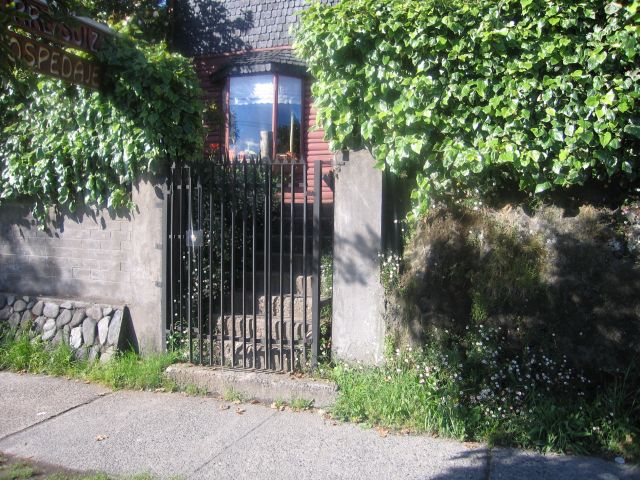
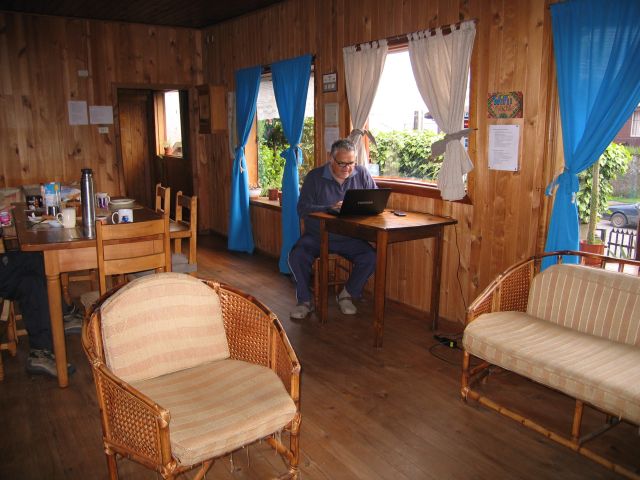
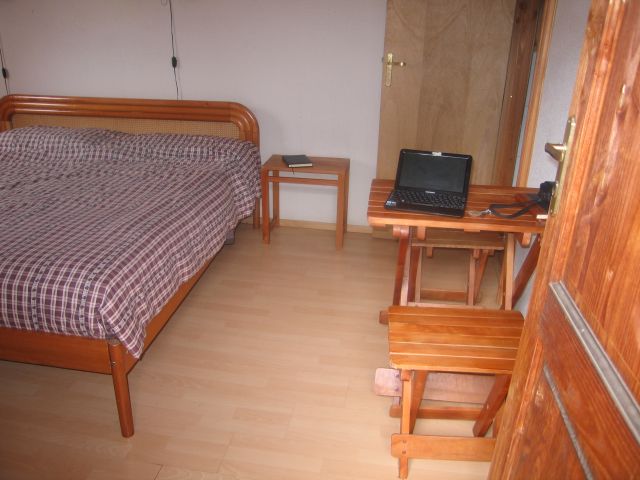
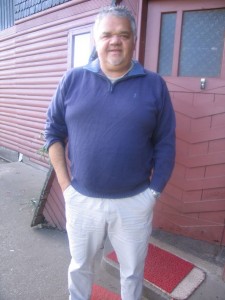
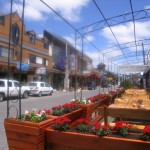
Leave a Reply